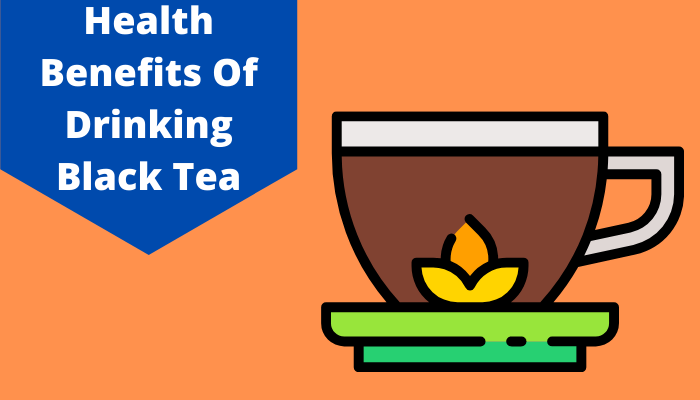There are numerous black tea benefits that you should be aware of. Black tea is one of the highest-consumed global beverages. It is something that we consume at home on a daily basis and sometimes in sizable quantities as well. Our regular black tea comes from the plant called Camellia Sinensis and is often fused with others for varying flavors like Chai, Earl Gray, etc. Most people know how to make black tea, i.e., boiling water and putting the tea leaves before covering with a lid for some time. Thereafter, you have to strain the tea into the cup. The method is quite simple. In this article, you will learn more about the benefits of drinking black tea.
Nutritional Value of Black Tea
There are black tea benefits. In fact, you can pair it up with a lot of things as well. You can experience the benefits of black tea with lemon or even with ginger. While containing rich antioxidants a cup of black tea contains the following nutrients:- Calories: 2.4
- Carbohydrates: 0.4 g
- Fibre: 0.1 g
- Protein: 0.1 g
Top 10 Health Benefits of Drinking Black Tea
Is black tea good for health? If you want to know the answer of this question, then you should read about the top 10 health benefits of drinking black tea daily as mentioned below:1. Comes with Rich Antioxidants
There are many uses of black tea and this comes from the fact that it contains rich antioxidants. They help in combating free radicals and scaling down overall cell damage within the body, thereby lowering the chances of chronic ailments. Black tea also contains polyphenols.2. May Enhance Heart Health
The benefits of drinking black tea also extend to enhanced health of the heart. It contains flavonoids which ensure improved heart health. They help in lowering several risks including higher cholesterol, triglycerides and blood pressure.3. Reduces Bad Cholesterol
Black tea also plays a vital role in reducing the levels of bad cholesterol or LDL within the body. This helps prevent their build-up in the arteries and subsequent issues like strokes or heart failures.4. Improves Stomach Health
Gut bacteria has a major bearing on stomach health and immunity. Black tea comes with several polyphenols which ensure a healthier gut ecosystem through stimulating the development of good bacteria and combating bad bacteria. Black tea also helps in destroying several harmful elements with its anti-microbial features.5. Lowers Blood Pressure
Black tea helps with blood pressure management. It can reduce blood pressure over a period of time as per studies. People with hypertension must include black tea in their daily diet plan to reduce their blood pressure.6. Lowers Chances of Strokes
Black tea also has a part to play in reducing the possibilities of strokes. Drinking a cup or two of black tea helps to prevent heart and brain strokes.7. Reduces Blood Sugar
Higher blood sugar levels often lead to higher risks of serious complications including obesity, type 2 diabetes and kidney failure along with cardiovascular ailments and even depression. Upon sugar consumption, there is the insulin hormone secreted by the pancreas for transportation of the sugar to the muscles. Consumption of extra sugar means that it is stored in the form of fat.8. Combats Cancer Risks
Although, black tea can’t combat all types of cancer. Reports find that black tea has polyphenols that may contribute towards combating cancer cells.9. Boosts Concentration
Focus and alertness are immensely enhanced through the consumption of black tea which has the L-Theanine amino acid and caffeine alike.10. Improves Oral Health
Research studies indicate that black tea has the potential to combat the formation of plaque and limit the growth of bacteria. It also helps in lowering the decay of teeth and cavities, while the polyphenols help in limiting such bacteria through hindering bacterial enzyme growth.There are black tea benefits for skin as well, along with overall immunity benefits according to reports.
Side Effects of Drinking Black Tea
Some of the side effects of black tea include the following:- Rapid/swift breathing
- Sleeping trouble and anxiety
- Vomiting and nausea
- Irregular heartbeat syndrome
- Headaches
- Higher urination
- Ringing sensation in the ears


